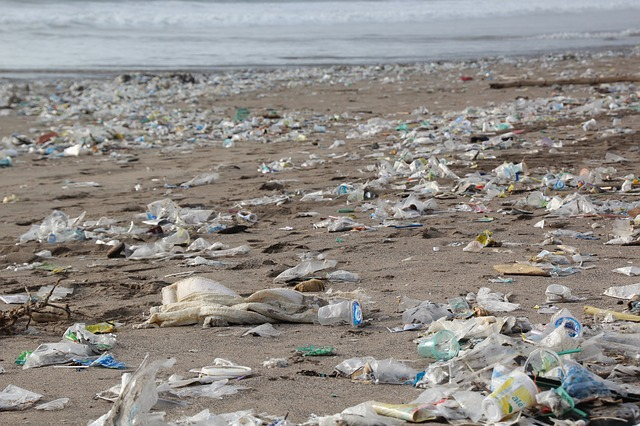
After struck by the horrible tsunami on Saturday night, December 22 that killed at least 429 people and affected the rim of Sunda Strait, the most popular tourist destination in Indonesia, Bali, has enacted a ban on single-use plastics such as shopping bags, styrofoam and straws to fight water pollution on Tuesday, December 25.
As per the reports, Bali governor Wayan Koster announced that the newly introduced policy aims for a 70 percent reduction in Bali's marine plastics within a year. This newly introduced policy carries a six-month grace period dating from Friday, December 21, when it was signed and took effect.
"This policy is aimed at producers, distributors, suppliers and business actors, including individuals, to suppress the use of single-use plastics. They must substitute plastics with other materials," he stated as quoted by tribunnews.
Koster also added that if anyone disobeys the ban "we will take action, like not extending their business permit."
Experts have stated that it is difficult to say from where exactly the trash came but they believe that 80 percent of these have originated from the island, as the waste materials from hotels and villages are often dumped in rivers, which then carry the trash out to sea. During coastal tides and currents, the trash finds its way back to the resort island's beaches.
Last year, Indonesia launched a national action plan, pledging up to US$1 billion to reduce the waste in its waters by 70 percent by 2025.
After Bali now Jakarta also plans to cut the percentage of plastic waste and as per the Jakarta Environmental Agency head Isnawa Adji, they had already agreed on this idea. A survey conducted by the Indonesia Plastic Bags Diet Movement, more than 90 percent of Jakarta's residents have agreed to reduce their use of plastic.
Indonesia is not the first country to ban or reduce the use of plastic. In Africa, more than 15 countries have either banned them or put a tax. China placed a ban on all thin plastic bags and began requiring retailers to charge a tax on thicker bags in 2008, before the Beijing Olympics. There are other Asian countries, which put a ban on plastic use and these are Bangladesh, Cambodia, Hong Kong, India, Malaysia and Taiwan.
However, it should be noted that in India, especially in metropolitan cities like Bangalore and Mumbai, people are less interested to follow the law as they feel that plastic bags are more convenient when it comes to shopping.
In 2003, South Africa also said that plastic bags are their 'national flower' due to their overwhelming presence in trees and bushes. But after the ban, while the usage of the plastic bags dropped 90 percent, its illegal use has increased gradually.
However, now the point is, the people of Indonesia have to understand the seriousness of movement and follow the law, otherwise the plan, introduced by the government will turn into a failure.









